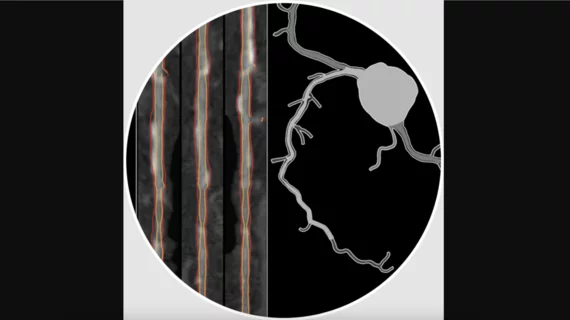CMS updates Medicare coverage for AI-powered coronary plaque assessments
The use of artificial intelligence (AI) platforms that evaluate imaging results to quantify coronary plaque buildup and identify signs of coronary artery disease (CAD) has received expanded Medicare coverage, according to a new policy finalized by the Centers for Medicare and Medicaid Services (CMS).
HeartFlow’s Plaque Analysis and Cleerly’s Coronary Analysis both use advanced AI models to interpret coronary CT angiography (CCTA) images. These technologies are at the heart of the new local coverage determination (LCD), which was first proposed months ago before an extended public comment period. Four of seven Medicare Administrative Contractors (MACs) agreed to the LCD, and the other three MACs will carry on as normal by working on a case-by-case basis.
According to the updated CMS policy, AI-powered CCTA evaluations will be considered “reasonable and medically necessary as a diagnostic study” when patients present with acute or stable chest pain with no known coronary artery disease (CAD), are eligible for CCTA and CCTA shows they are at an intermediate risk according to CAD-RADS scoring parameters. This goes into effect Nov. 24.
CMS emphasized that any AI company looking to secure Medicare approval based on this LCD must ensure their software “is not intended to replace the skill and judgement of a qualified medical practitioner and should only be used by people who have been appropriately trained in the software’s functions, capabilities and limitations.”
The full LCD, including a long list of the evidence considered when this decision was finalized, is available here.
HeartFlow celebrates decision
California-based HeartFlow issued a statement applauding the decision to expand Medicare access for its Plaque Analysis software and other similar technologies.
“We commend the MACs for recognizing the value and critical role of AI-enabled plaque quantification technologies in cardiovascular disease management,” John Farquhar, HeartFlow’s CEO, said in a statement. “Medicare’s coverage of HeartFlow Plaque Analysis is a significant step forward for cardiovascular disease diagnosis and treatment, expanding access for patients who will see great benefit from more targeted and effective interventions.”
“The earlier we can diagnose and use tools to provide accurate plaque quantification, the earlier we can provide tailored treatments, potentially improving outcomes for patients,” Ron Blankstein, MD, director of cardiac CT at Brigham and Women’s Hospital and a professor of medicine at Harvard Medical School, said in the same statement.

